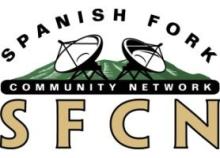$117,000 Broadband Service Disaster From Charter
Shocking horror stories about incumbent ISPs reaching new lows for poor service are now so common that they have become routine. A story from Ars that recently went viral puts a human face on the frustration millions of Americans endure just trying to determine if Internet access is available where they choose to live. First, here is the gist of the story.
Cole Marshall, a work-from-home web developer, decided he wanted to build a new home on the outskirts of Sun Prairie, Wisconsin. While scouting properties, he confirmed with local incumbent ISPs Comcast and Frontier online and by phone that they could offer sufficient Internet access to his favored lot.
When Marshall completed construction and contacted Charter, the cable company offered to provide the service only if he paid $117,000 to extend their network to his home. And Frontier? Frontier mislead him too, pricing the job at $42,000 to bring him the 24 Mbps service they’d promised they could provide.
When all was said and done, Charter couldn’t provide affordable service at all. Marshall is now stuck with Frontier’s sloth-like DSL broadband speeds of 3 Mbps download / 1 Mbps upload for all of his small business needs. These speeds fall well short of the 25 Mbps download / 4 Mbps upload the FCC defines as “broadband.”
Marshall’s story illustrates well the problems with existing broadband services in and around the city of Sun Prairie that led citizens and city leaders to recently pass a resolution to build a municipal broadband network in some areas within the city limits. While Marshall’s address is outside the purview of Sun Prairie’s planned network buildout, the potential for future expansion of this publicly-owned network may be Marshall’s only hope for a solution to his broadband connectivity problems.








